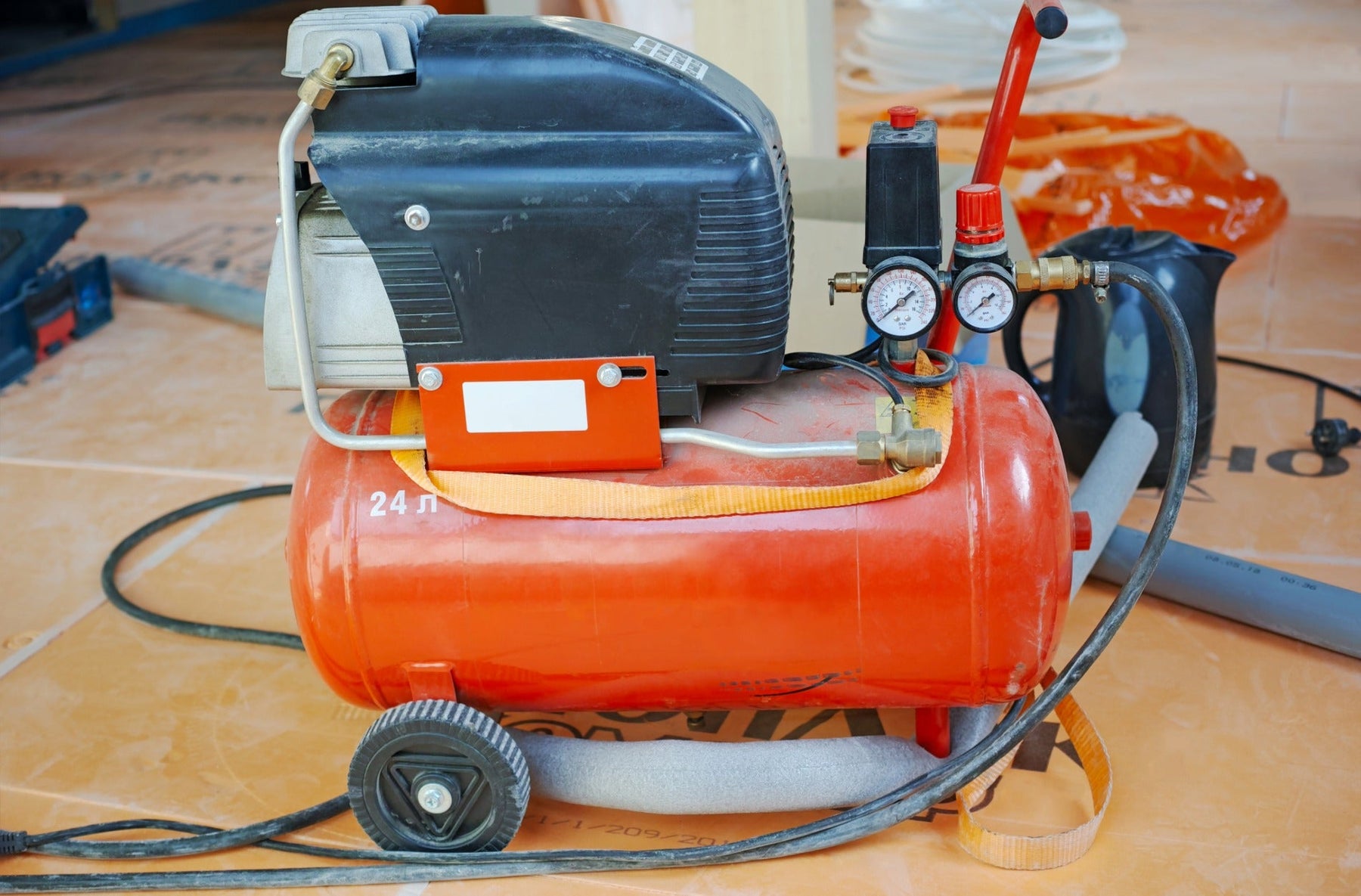
What Makes a Quality Inline Air Compressor Filter
Air compressors play a big role in keeping industrial operations running smoothly. But without the right filter in place, they can become less efficient, more expensive to maintain, and even risky to operate. It’s often the small parts that make the biggest impact over time. That’s where the inline air compressor filter steps in. When it’s well-built and properly matched to the system, it protects machines from damage, helps systems run cleaner, and saves time on repairs.
Choosing a quality filter doesn’t just mean buying the one that looks right. There’s more to it than size and shape. Poor-quality filters can lead to pressure drops, higher operating temperatures, or early wear and tear. If you’ve had to troubleshoot pressure issues, oil contamination, or constant clogs, then the filter might be working against you instead of for you. Picking the right one doesn’t have to be complicated, and getting familiar with what actually makes a good filter can go a long way in helping prevent future problems.
What Is an Inline Air Compressor Filter?
An inline air compressor filter is a part that’s installed directly along the airline of a compressed air system. Its job is to catch and trap contaminants like dust, moisture, dirt, oil, and even small metal particles before they can make their way into tools or machinery. Industrial environments generate a lot of debris, and this filter acts like a barrier that keeps the airflow clean and consistent.
The reason this specific filter matters so much is because compressed air doesn’t come out of a compressor perfectly clean. Heat, oil vapor, and outside particles all mix in during the process. If those aren’t removed, they gum up internal parts, reduce airflow quality, and make the system work harder than it should. All this can lead to longer downtimes, more maintenance, and reduced tool life.
Let’s say you’re running a pneumatic tool line across a shop. Without a proper inline filter, moisture and fine particles could sneak downstream, leading to rusted fittings or air leaks. These small issues may seem harmless at first, but they can quickly lead to system-wide performance problems. With a good inline air compressor filter in place, the filter catches those contaminants and keeps the system running without interruption.
Key Features of a Quality Inline Air Compressor Filter
Not all filters are made the same, and the best ones share a few practical traits that directly impact how your air system performs day after day. When shopping for a replacement or evaluating the one you already use, keep an eye on these key features:
1. Durability and Material Quality
Filters built for industrial use should be made from materials that can withstand long operating hours, pressure cycles, and exposure to oil and moisture. Look for filters with a solid outer body and corrosion-resistant components.
2. Filtration Efficiency
This relates to the filter’s ability to catch fine particles. A higher filtration efficiency means the filter traps more contaminants. Pay attention to micron ratings. Lower numbers mean the filter captures smaller debris, which results in cleaner air output.
3. Compatibility and Size
A filter might be high quality, but if it doesn’t fit your system or isn’t rated for your pressure levels, it won’t bring much benefit. Always double-check that the threading, flow rates, pressure ratings, and overall dimensions line up with your existing equipment.
4. Maintenance and Ease of Replacement
A good filter should be easy to access, clean, or replace without special tools. The longer it takes to change out a filter, the longer your operations could be impacted. Some filters even feature clear housings or labels that help mark replacement times.
When filters meet these standards, they tend to perform more consistently and last longer, which limits downtime and boosts productivity. Investing in a quality inline air compressor filter early can save time and costs down the road.
Benefits of Using a High-Quality Inline Air Compressor Filter
A high-quality inline air compressor filter offers several real-world benefits for industrial operations.
1. Enhanced Air Quality
These filters do a good job of removing dust, oil droplets, and moisture from compressed air systems. By keeping these contaminants out, the air flowing through your tools and machines stays clean. This protects machinery and minimizes the odds of internal buildup or air leaks.
2. Increased Equipment Lifespan
Contaminants can wear out machine parts faster or lead to clogs that strain operation. Using a quality filter from the start helps prevent that kind of wear and tear. This can reduce the risk of equipment failure and extend the life of each compressor in use.
3. Operational Efficiency and Cost Savings
Clean air means that compressors don’t have to work as hard to deliver the pressure your systems need. When everything flows correctly, you’ll likely see lower energy use, fewer breakdowns, and less time spent on repairs. That kind of reliability can lead to real cost savings over time, especially for operations running around the clock.
High-quality filters are more than just a small piece of hardware. Their role in helping equipment run cleaner and cooler makes them a smart long-term decision.
How to Choose the Right Inline Air Compressor Filter for Your Needs
Finding the right inline air compressor filter doesn’t have to be overwhelming. There are a few simple ways to narrow down the right choice for your system.
1. Assess Your Requirements
Start by thinking about the kind of work your system handles on a daily basis. Is the system exposed to harsh contamination? Do you need extra-fine filtration for precision tools? Environments like woodworking shops and heavy fabrication shops have different needs. Identifying the type of contaminants and your target air quality is the first step.
2. Do Some Research
Look into filter types that match your system’s pressure and flow specs. Reading customer reviews can also tell you how long a filter tends to last, how easy it is to install, or whether there are issues with durability. That feedback can flag potential problems before you buy.
3. Consult with Experts
There’s value in reaching out to technical advisors or trusted suppliers. They can look at your setup and suggest filters that hit the right balance between filtration level, budget, and performance. Rather than guessing, you’ll be getting a solution based on real input.
The goal is to match function with fit. By taking the time upfront, you’ll avoid service disruptions and keep your air system supplying consistent flow.
Importance of Regular Filter Maintenance
Even the best filter won’t work forever without regular care. Keeping on top of filter maintenance helps protect performance and keep operations stable.
It’s a good idea to inspect the filter for clogs or damage every few months. Heavy-use environments might need shorter intervals. Follow the manufacturer’s recommendations, but don’t be afraid to adjust based on how quickly your filters fill up. When filters stay in beyond their life cycle, they can restrict airflow, trigger overheating, and even impact pressure levels across your lines.
Creating a maintenance log helps. Have your team record the date of inspection and filter changes. This way, there’s a clear record that can prevent lapses in coverage and alert you to unusual increases in contamination.
Aside from keeping things running smoothly, sticking with a regular schedule limits the chance of failure during peak hours or production runs. Less downtime means better output, and better output benefits your bottom line.
Keep Your Equipment Running Smoothly
Choosing the right inline air compressor filter and performing routine maintenance are key parts of running a system that holds up over time. A well-matched, high-quality filter will boost air quality, reduce part wear, and help avoid costly service calls. It can also extend the working life of other equipment in your system.
Even small particles moving through your airline can lead to big problems. That’s why the filter you choose matters. Keeping your system protected with the right product can give you dependable performance day after day.
Take the time to select a filter that fits well, performs consistently, and comes from a trusted source. It’s a simple step toward making sure your operations keep moving forward without interruption.
Quality filters make a world of difference in maintaining efficient and reliable industrial operations. If you're ready to see the benefits for yourself, explore our selection of high-performance solutions to find the perfect inline air compressor filter for your system. At Compressor Filter Hub, we understand the importance of keeping your equipment in optimal condition, ensuring continuous performance and reducing downtime.
